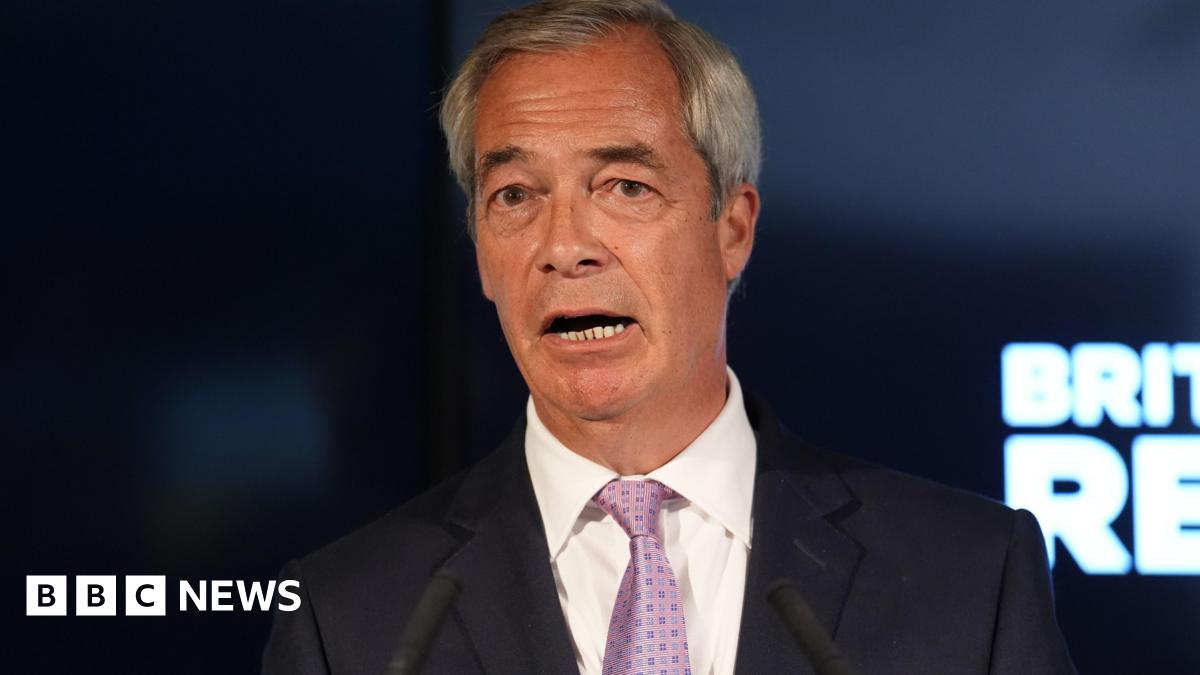T4K3.news
Farage claims crime data is flawed
Farage questions the credibility of crime statistics at a Reform UK conference.

Farage questions the accuracy of crime statistics while presenting his party's plans.
Farage claims crime data is flawed as debate intensifies
At a recent conference, Nigel Farage, leader of Reform UK, criticized past home secretaries for their claims about falling crime rates. He argued that the crime survey for England and Wales is based on misleading data, pointing to police data showing the increase in various types of crime, especially those against individuals. While the annual crime survey reported a 14% rise in incidents, this figure is contextualized by decades of decreasing crime rates. The survey, assessing personal experiences with crime, is seen as a more reliable measure than recorded police data, which has been criticized for inconsistencies. Recent data shows slight declines in violence against the person in the last year, but a long-term upward trend remains.
Key Takeaways
"The crime survey for England and Wales is based on completely false data."
Farage asserts that the foundation of trusted crime statistics is flawed.
"The survey includes incidents that haven’t been reported to the police."
This highlights the survey's strength as a more accurate reflection of crime trends over time.
"Police recorded data does not have this status because of concerns about its quality and consistency."
This statement emphasizes the debate about the reliability of crime statistics.
Farage’s statements reveal a contentious divide in the perception of crime data. His remarks seem to resonate with a public increasingly concerned about safety. Using police data as a key argument, he taps into fears that numbers from surveys do not reflect true experiences, despite the latter being deemed more reliable. This raises questions about public trust in crime statistics and how political discourse shapes perceptions of security. As crime continues to influence political agendas, understanding these nuances is essential for citizens and policymakers alike.
Highlights
- Public safety concerns are front and center in today's discussions.
- Public trust in crime statistics faces deep scrutiny.
- Farage's attack on data reflects societal fears about safety.
- Crime data debates influence public perception and policy.
Public backlash over crime data accuracy
Farage's controversial claims may exacerbate public distrust in crime statistics and fuel ongoing political arguments about safety and security.
The evolving conversation around crime data will shape future political landscapes.
Enjoyed this? Let your friends know!
Related News

Israeli Forces Face Allegations of War Crimes

Farage demands response to Savile comments from Minister

Trump discusses impact on global conflicts during Starmer meeting

UK government commits to recognizing Palestinian state

Reform UK pledges to repeal Online Safety Act

Essex Police denies Farage's accusations about protest transportation
Ukraine conducts drone strikes on Russian energy sites

Lovense data breach exposes user emails and account info
